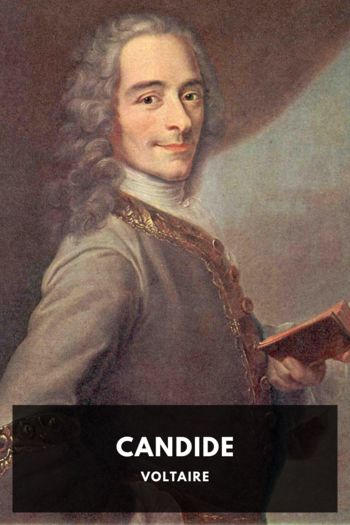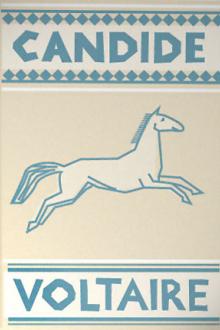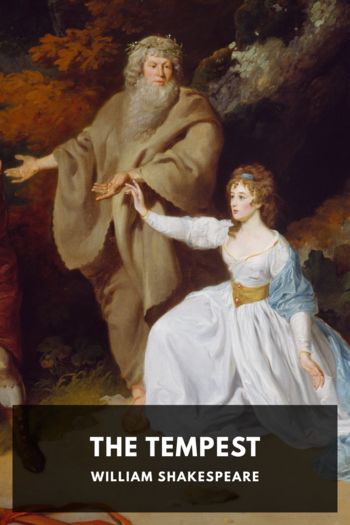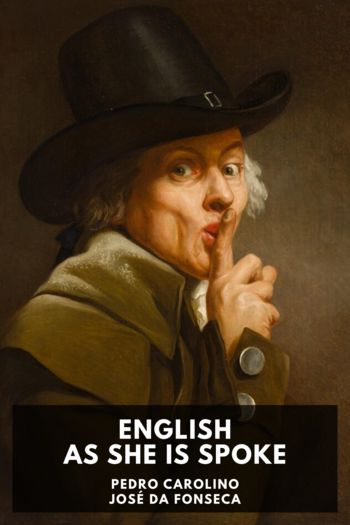Candide, Voltaire [best romantic novels in english .txt] 📗

- Author: Voltaire
Book online «Candide, Voltaire [best romantic novels in english .txt] 📗». Author Voltaire
Candide, observing a Milton, asked whether he did not look upon this author as a great man.
“Who?” said Pococurante, “that barbarian, who writes a long commentary in ten books of harsh verse on the first chapter of Genesis; that coarse imitator of the Greeks, who disfigures the Creation, and who, while Moses represents the Eternal producing the world by a word, makes the Messiah take a great pair of compasses from the armoury of heaven to circumscribe His work? How can I have any esteem for a writer who has spoiled Tasso’s hell and the devil, who transforms Lucifer sometimes into a toad and other times into a pigmy, who makes him repeat the same things a hundred times, who makes him dispute on theology, who, by a serious imitation of Ariosto’s comic invention of firearms, represents the devils cannonading in heaven? Neither I nor any man in Italy could take pleasure in those melancholy extravagances; and the marriage of Sin and Death, and the snakes brought forth by Sin, are enough to turn the stomach of anyone with the least taste, [and his long description of a pesthouse is good only for a gravedigger]. This obscure, whimsical, and disagreeable poem was despised upon its first publication, and I only treat it now as it was treated in its own country by contemporaries. For the matter of that I say what I think, and I care very little whether others think as I do.”
Candide was grieved at this speech, for he had a respect for Homer and was fond of Milton.
“Alas!” said he softly to Martin, “I am afraid that this man holds our German poets in very great contempt.”
“There would not be much harm in that,” said Martin.
“Oh! what a superior man,” said Candide below his breath. “What a great genius is this Pococurante! Nothing can please him.”
After their survey of the library they went down into the garden, where Candide praised its several beauties.
“I know of nothing in so bad a taste,” said the master. “All you see here is merely trifling. After tomorrow I will have it planted with a nobler design.”
“Well,” said Candide to Martin when they had taken their leave, “you will agree that this is the happiest of mortals, for he is above everything he possesses.”
“But do you not see,” answered Martin, “that he is disgusted with all he possesses? Plato observed a long while ago that those stomachs are not the best that reject all sorts of food.”
“But is there not a pleasure,” said Candide, “in criticising everything, in pointing out faults where others see nothing but beauties?”
“That is to say,” replied Martin, “that there is some pleasure in having no pleasure.”
“Well, well,” said Candide, “I find that I shall be the only happy man when I am blessed with the sight of my dear Cunégonde.”
“It is always well to hope,” said Martin.
However, the days and the weeks passed. Cacambo did not come, and Candide was so overwhelmed with grief that he did not even reflect that Paquette and Friar Giroflée did not return to thank him.
XXVI Of a Supper Which Candide and Martin Took with Six Strangers, and Who They Were34One evening that Candide and Martin were going to sit down to supper with some foreigners who lodged in the same inn, a man whose complexion was as black as soot, came behind Candide, and taking him by the arm, said:
“Get yourself ready to go along with us; do not fail.”
Upon this he turned round and saw—Cacambo! Nothing but the sight of Cunégonde could have astonished and delighted him more. He was on the point of going mad with joy. He embraced his dear friend.
“Cunégonde is here, without doubt; where is she? Take me to her that I may die of joy in her company.”
“Cunégonde is not here,” said Cacambo, “she is at Constantinople.”
“Oh, heavens! at Constantinople! But were she in China I would fly thither; let us be off.”
“We shall set out after supper,” replied Cacambo. “I can tell you nothing more; I am a slave, my master awaits me, I must serve him at table; speak not a word, eat, and then get ready.”
Candide, distracted between joy and grief, delighted at seeing his faithful agent again, astonished at finding him a slave, filled with the fresh hope of recovering his mistress, his heart palpitating, his understanding confused, sat down to table with Martin, who saw all these scenes quite unconcerned, and with six strangers who had come to spend the Carnival at Venice.
Cacambo waited at table upon one of the strangers; towards the end of the entertainment he drew near his master, and whispered in his ear:
“Sire, your Majesty may start when you please, the vessel is ready.”
On saying these words he went out. The company in great surprise looked at one another without speaking a word, when another domestic approached his master and said to him:
“Sire, your Majesty’s chaise is at Padua, and the boat is ready.”
The master gave a nod and the servant went away. The company all stared at one another again, and their surprise redoubled. A third valet came up to a third stranger, saying:
“Sire, believe me, your Majesty ought not to stay here any longer. I am going to get everything ready.”
And immediately he disappeared. Candide and Martin did not doubt that this was a masquerade of the Carnival. Then a fourth domestic said to a fourth master:
“Your Majesty may depart when you please.”
Saying this he went away like the rest.





Comments (0)